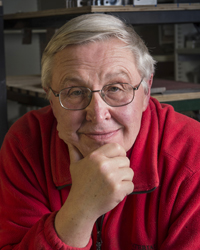Relationship Study: Do You Love Me? |
 Obviously, playing the random "He loves me, he loves me not" game is not the best way to determine if the object of your affection returns your feelings.
However, new research from Carnegie Mellon suggests that perhaps the best way to have your partner love you is to show him/her love first. Published in the Journal of Social and Personal Relationships, the study offers a direct measure of perceived partner closeness, or how to gauge if he or she does in fact love you. "Developing closeness with another person can be risky, so you need to regulate the closeness to protect yourself from things like rejection or sharing too much with the wrong person," explained the study's lead author, Jennifer M. Tomlinson, a post-doctoral research fellow in the Dietrich College of Humanities and Social Sciences' Department of Psychology. "When we become close with someone, we begin to include aspects of them in our self image. We also look for cues that relationship partners value us in the same way. What our work found was that this predicts whether people feel comfortable increasing their own closeness in a relationship." Read the full story. |
Garrison Develops New High-Stress Steel |
 Warren M. Garrison Jr. Warren M. Garrison Jr., a professor of materials science and engineering, has developed a new ultra-strength steel of high fracture toughness that is significantly less expensive to manufacture than existing products. The new steel contains no cobalt and only a relatively small amount of nickel and therefore is much less expensive than other ultra-high strength steels of high fracture toughness - all of which contain large amounts of cobalt and nickel. Garrison said the new steel is one of the outcomes of a Small Business Technology Transfer Program, which was funded by the U.S. Navy. The steel was developed with Navy aircraft applications in mind, but it could be used for other applications. Garrison has a patent pending for the new steel. Read more. |
OREOs to Popcorn: HERB's Discovering More |
 HERB, the Home-Exploring Robot Butler that appeared in OREO's Cookie vs. Creme ad campaign on YouTube, has discovered popcorn, thanks to the Lifelong Robotic Object Discovery (LROD) process developed by researchers at the Robotics Institute. LROD has enabled HERB to discover more than 100 objects in a home-like laboratory, including items such as computer monitors, plants and food items, such as popcorn. The robot's ability to discover objects on its own sometimes takes even the researchers by surprise, said Siddhartha Srinivasa, associate professor of robotics and head of the Personal Robotics Lab, where HERB is being developed. In one case, some students left the remains of lunch - a pineapple and a bag of bagels - in the lab when they went home for the evening. The next morning, they returned to find that HERB had built digital models of both the pineapple and the bag and had figured out how it could pick up each one. Srinivasa said discovering and understanding objects in places filled with hundreds or thousands of things will be a crucial capability once robots begin working in the home and expanding their role in the workplace. Read the full story. | Read more about HERB.
|
Give Yourself a Pep Talk: Self-Affirmation Improves Problem-Solving Under Stress |
 It's no secret that stress increases your susceptibility to health problems, and it also impacts your ability to solve problems and be creative. But methods to prevent associated risks and effects have been less clear - until now. Published in PLOS ONE, new research from Carnegie Mellon provides the first evidence that self-affirmation can protect against the damaging effects of stress on problem-solving performance. Understanding that self-affirmation - the process of identifying and focusing on one's most important values - boosts stressed individuals' problem-solving abilities will help guide future research and the development of educational interventions. "People under high stress can foster better problem-solving simply by taking a moment beforehand to think about something that is important to them," said J. David Creswell (pictured above), assistant professor of psychology in the Dietrich College of Humanities and Social Sciences.
Creswell said. "It's an easy-to-use and portable strategy you can roll out before you enter that high pressure performance situation." Read the full story.
|
|
Help ensure the safety and well-being of the CMU community:
University Police: 412-268-2323
Ethics Hotline: 1-877-700-7050
|
|
|
|